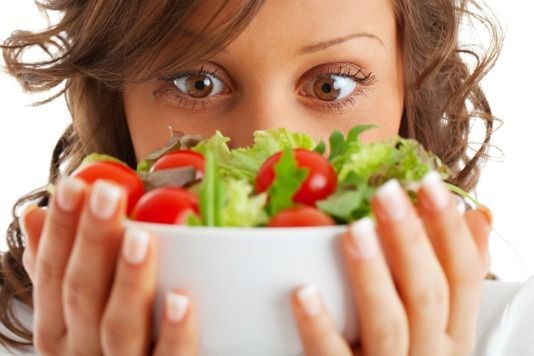
If you want to look out for your health, you reach for a salad, right? Wrong. Sometimes even the healthiest of foods can lead to life-threatening illnesses.
It didn’t seem fair, a few weeks ago, when my friend spent a night curled around the toilet after a chickpea burger. The rest of us had gone for beef burgers. On the whole, they were rare and bloody ones.
We think that deadly contaminations in the food system are mostly confined to undercooked meat – hence the squabble over whether British burger joints should defile their finest patties by cooking them until “done” – when a growing number of E. coli outbreaks have been traced back to salad vegetables, including lettuce, radishes and spinach.
Where does E. coli come from?
The reason we associate this bug with animals is that it generally comes from them. It might then contaminate vegetables when unsafe manure is spread on plants, or when water that has come into contact with the faeces or guts of farm animals somehow reaches these plants.
The problem is that the E. coli bacteria are often killed off when food is cooked, but in unwashed salads it remains virulent. Lots of foods contain low levels of E. coli that do not result in illness, but they can lead to diarrhoea, then kidney failure and even death.
Some salads are deadlier than others
This year there was an E. Coli outbreak in Germany that killed 50 people and left many more with kidney problems. The problem was traced back to some fenugreek seeds from Egypt which were sold for sprouting, which led the authorities to believe that sprouted seeds and beans should be cooked thoroughly.
This advice has since been revised, but it seems that those vegetables always kept in a cool environment (think the sort we want to keep crisp such as cucumbers and lettuce) are safer bets than anything placed in a warm atmosphere to encourage sprouting. Outbreaks have happened in the UK too, In September 2011 250 people were taken ill due to an E.Coli outbreak. One even died.
I’m not going to give up my beloved burgers, but people who are pregnant, have a weak immune system or the elderly might want to think twice about eating raw or undercooked foods. It is also wise to make sure the raw meat in your fridge is not touching anything else, and to use separate chopping boards for uncooked meat and for vegetables.
Should I still wash my salad?
Absolutely. Although washing your salad will not rid it of any potentially harmful E. coli bacteria, it can still get rid of other potentially harmful bugs, as well as that mud and the odd slug!
Even better, drag out that mouldy salad drawer from the fridge and give it a proper clean. There could be up to 750 times the safe level of bacteria in your salad drawer, including salmonella and listeria as well as E. coli.
In a salad daze? Try these recipes
Omar Allibhoy's Olive winter salad
Sophie Wright's French camembert salad
Marcus Wareing's Dorset crab salad
Paul Merrett's barley salad with goat's cheese toast